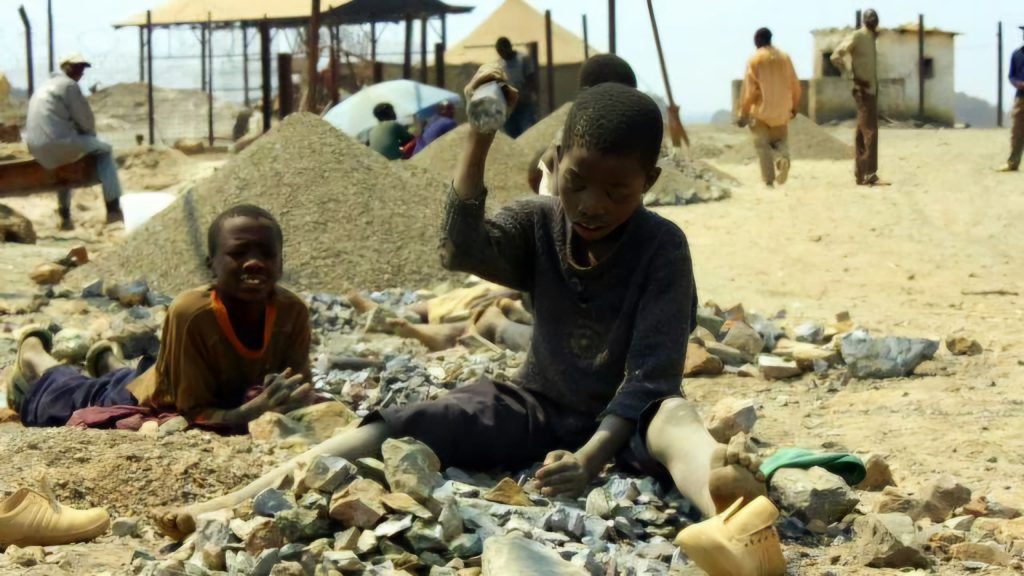The Democratic Republic of Congo (DRC) has voiced strong objections to the United States’ recent classification of child labor in its mining industry. The Congolese government contends that the US assessment fails to acknowledge the significant reforms implemented to enhance governance in the sector.
The controversy erupted following a report from the US Department of Labor, which included cobalt ore from the DRC on its 2024 list of goods produced using child or forced labor. According to an information note sent to the DRC government on September 24, the US identifies cobalt as a high-risk mineral, primarily sourced from artisanal mines, and links forced labor to both artisanal and industrial mining activities.
In response, the DRC government issued a statement asserting that the report “deliberately overlooks local realities and damages the international reputation of the Congolese mining sector.” It criticized the inclusion of cobalt in the forced labor list, arguing that it undermines the effectiveness of international compliance monitoring mechanisms intended to uphold human rights, labor rights, and safety standards.
As the world’s largest producer of cobalt, accounting for approximately 70 percent of global deposits crucial for electric vehicle batteries, the DRC plays a vital role in the supply chain. The Ministry of Labor’s findings could aid civil society organizations in highlighting labor rights violations within global value chains and assist companies in mitigating such abuses.
The US decision to categorize DRC cobalt as a product linked to forced labor was influenced by a 2023 study funded by the Ilab. This research found that workers in both industrial and artisanal mines faced forced labor conditions, including excessive overtime, hazardous working environments, and unpaid wages.
In its defense, the Congolese government highlighted several reforms aimed at regulating the mining sector more effectively, such as the establishment of the General Inspectorate of Mines and the revitalization of the Authority for the Regulation of Subcontracting in the Private Sector. It also emphasized its commitment to enhancing supply chain transparency and participating in international initiatives like the Extractive Industries Transparency Initiative (EITI).
Founded in 2019, the Entreprise Générale du Cobalt aims to promote responsible practices in artisanal cobalt mining but only became operational in 2023. The organization has encountered challenges in managing artisanal production complexities, with its director admitting a lack of accurate data regarding the number of artisanal cobalt workers.
Despite the legal status of artisanal mining in the DRC, it remains chaotic, with many operators struggling to differentiate between training and child labor, as most operations are family-run. President Félix Tshisekedi and his officials argue that armed groups and multinational companies are exploiting the DRC’s mineral resources, exacerbating conflicts in the region. This exploitation has facilitated the rise of armed groups in mining areas, particularly in the Rubaya coltan mining region, where rebels impose significant production taxes.
Reports from the UN indicate that armed groups involved in artisanal mining have been responsible for numerous violent incidents and massacres throughout the DRC. Civil activist Donat Kambola described the situation in Kolwezi, the DRC’s cobalt hub, as “a reign of chaos,” despite claims of increased incomes in the artisanal sector.
Kambola emphasized that ongoing human rights issues and transparency challenges persist, asserting that, irrespective of legal reforms, the realities on the ground have not improved. He highlighted the difficulty in establishing designated artisanal zones, which leads to illegal encroachments on industrial sites and complicates efforts to identify artisanal miners.
As mining remains a significant source of revenue in the DRC, it often results in political actors exploiting these resources for personal gain, further entrenching the chaos within the sector. Kambola noted that many entrepreneurs involved in mining have political “protectors,” contributing to the ongoing instability in the region.

